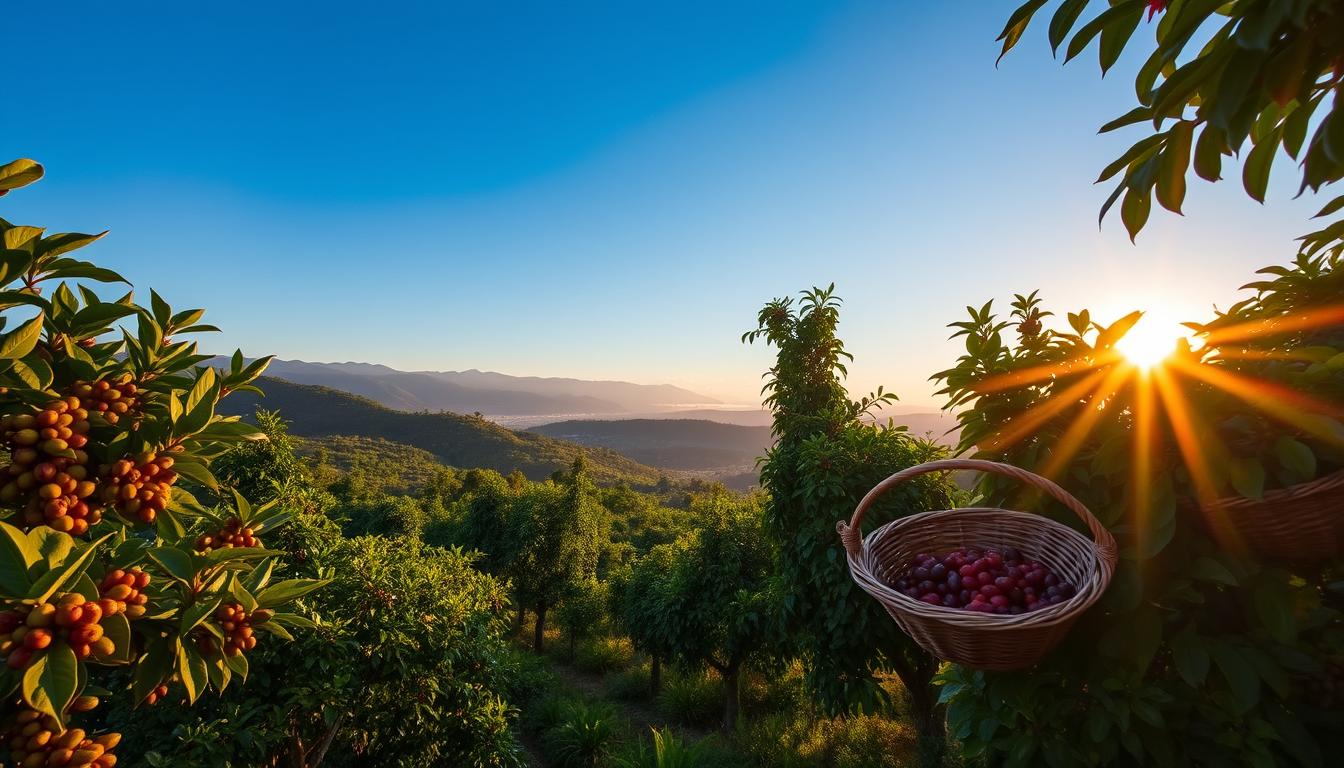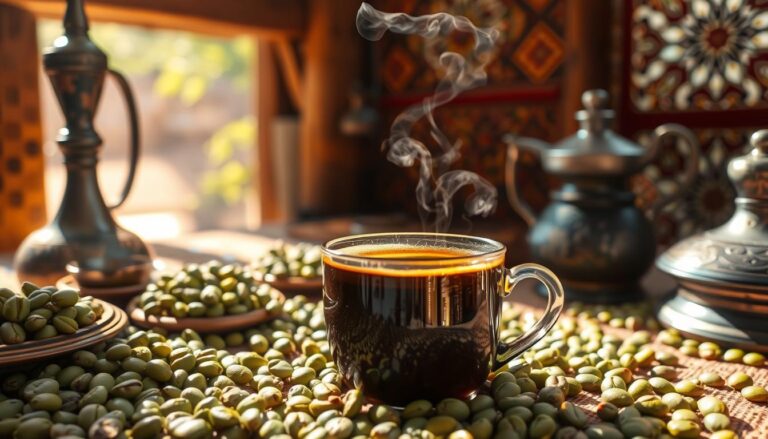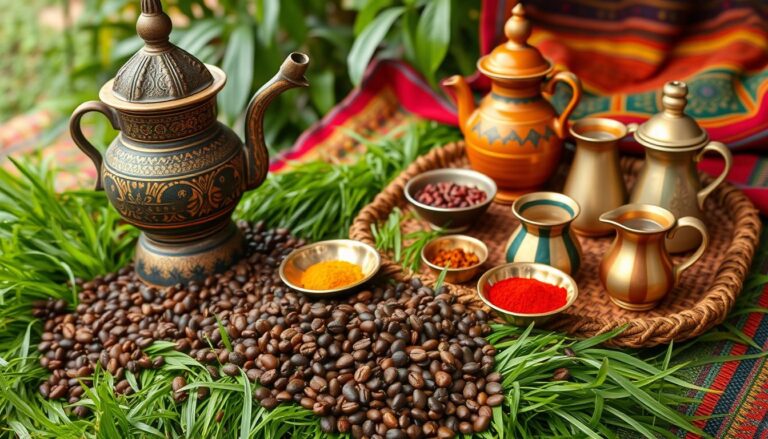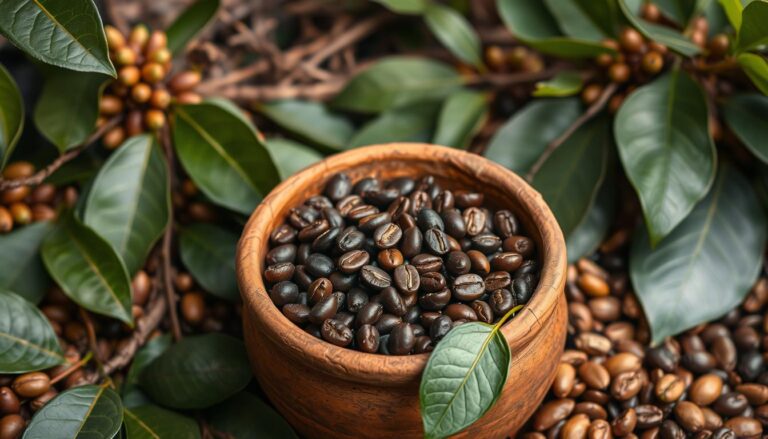Have you ever thought about where your morning coffee comes from? Ethiopian coffee is known for its rich flavor, thanks to the Arabica bean. While Robusta beans are grown there too, Arabica makes up about 80% of Ethiopia’s coffee.
Ethiopia is where Arabica coffee was first found. It has many coffee-growing areas, each with its own taste. Places like Sidamo and Yirgacheffe are famous for their coffee. The high altitude, from 1,500 to 2,200 meters, helps make the coffee special.
Key Takeaways
- Ethiopian coffee is mostly Arabica, known for its quality and taste.
- Places like Sidamo and Yirgacheffe add unique flavors to the coffee.
- The high altitude helps make the coffee’s taste stand out.
- Robusta beans are also grown in Ethiopia but are less common.
- The Arabica bean was first found in Ethiopia’s Kaffa region.
Ethiopian Coffee Varieties
Ethiopia is a treasure trove of coffee diversity. It has over 10,000 coffee varieties, each with its own flavor. The main types are Arabica and Robusta.
The Basics of Coffee Plant Types
Arabica beans are found in 80% of Ethiopia’s coffee. They are known for their mild flavors, often tasting fruity, floral, and citrusy. Robusta beans, making up 20%, have a stronger taste and more caffeine.
Arabica vs. Robusta: Key Differences
Arabica grows best at high altitudes and cooler climates. Robusta prefers lower elevations and warmer temperatures. This affects the flavor of the beans.
Why Origin Matters in Coffee Quality
Ethiopia’s terroir greatly influences its coffee’s flavor. The unique soil, altitude, and processing methods make Ethiopian coffee exceptional. Regions like Sidama, Yirgacheffe, and Harrar offer distinct tastes, enriching Ethiopia’s coffee heritage.
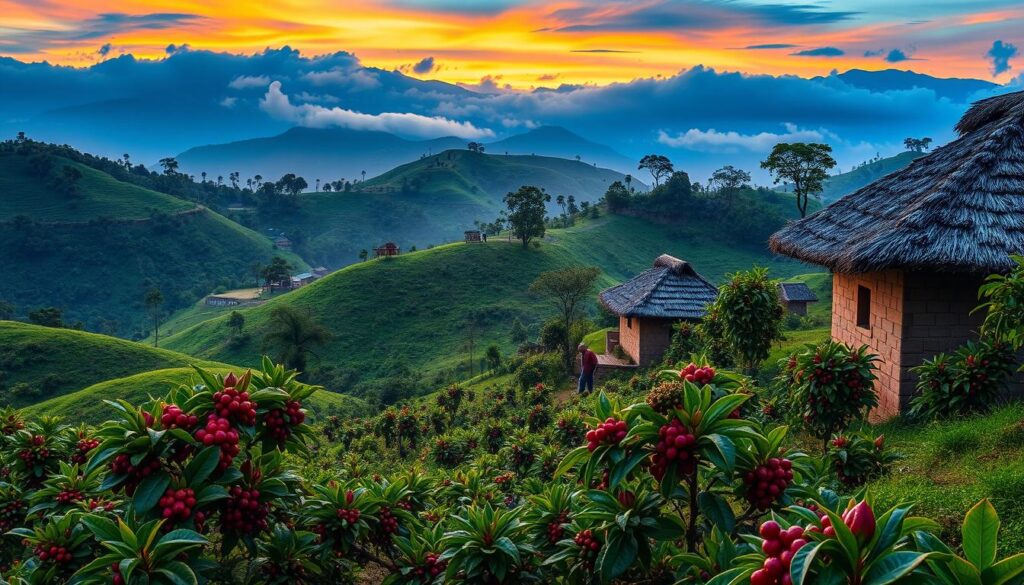
“Ethiopia’s coffee is truly a gift to the world, showing the incredible diversity and nuance in this beloved beverage.”
The Rich Heritage of Ethiopian Coffee
Ethiopia is special in the world of coffee. It’s where coffee first started. The country’s history with coffee is deep and rich. From old traditions to new ways, Ethiopian coffee’s story is fascinating to everyone who loves coffee.
Cultural Significance of Coffee in Ethiopia
In Ethiopia, coffee is more than a drink. It’s a big part of life. Coffee ceremonies are key in social events. They bring people together with the aroma of coffee.
The ceremony includes roasting, grinding, and making the perfect cup. It’s a slow, careful process.
Traditional Brewing Methods
The traditional Ethiopian way of brewing coffee is called the jebena. It uses a clay pot with a long neck. This method makes a strong, full coffee that shows the bean’s true taste.
The jebena method, along with natural and washed processing, makes Ethiopian coffee unique. It has special flavors.
The Role of Terroir in Flavor Profiles
Ethiopia’s different regions and climates shape coffee flavors. For example, Harrar coffee is known for its wine-like taste and bright acidity. Yirgacheffe coffee has delicate floral and tea-like notes.
This mix of coffee terroir and processing makes Ethiopian coffee stand out. It’s why people love it so much.
Ethiopian coffee culture and its traditional coffee ceremonies show the country’s deep love for coffee. The careful brewing and unique flavors from coffee terroir make Ethiopian coffee a favorite worldwide.
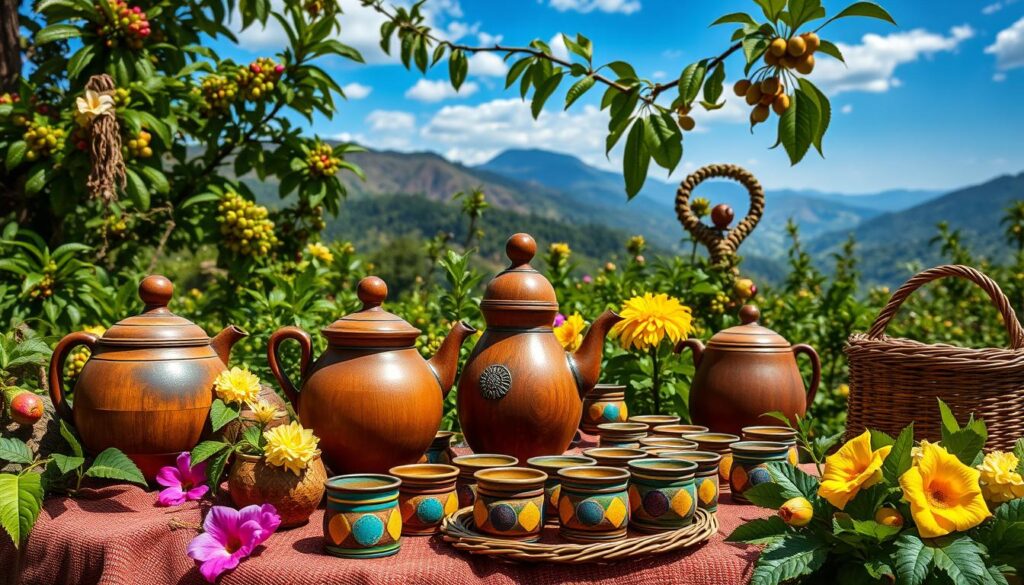
“Coffee has always been a part of our culture in Ethiopia. It’s not just a drink, it’s a way of life.”
– Alemtsehay Werehbabesh, Ethiopian Coffee Farmer
Choosing Your Ethiopian Coffee
When picking an Ethiopian coffee, think about freshness and how it’s processed. For the best taste, drink your beans within a month of roasting. Use filter methods like V60, Chemex, or batch brewers to bring out their floral and fruity notes.
Popular Brands to Explore
Start with Yirgacheffe beans for a taste that’s both complex and easy to enjoy. If you’re looking for something bolder, try Sidamo or Guji. Look into Keffa Coffee, Rift Valley Coffee, and Belco Coffee for their unique flavors.
How to Brew Ethiopian Coffee Perfectly
Heat your water to 92-94°C to keep the coffee’s delicate flavors in the spotlight. Grind the beans to a medium-fine grind for the best results. Store your coffee in an airtight container, away from sunlight, to keep it fresh.
Taste Testing: What to Expect
Ethiopian coffees are known for their bright acidity and floral scents. You’ll find flavors like citrus, berries, jasmine, and honey. Enjoy them black to fully appreciate their complex taste.

